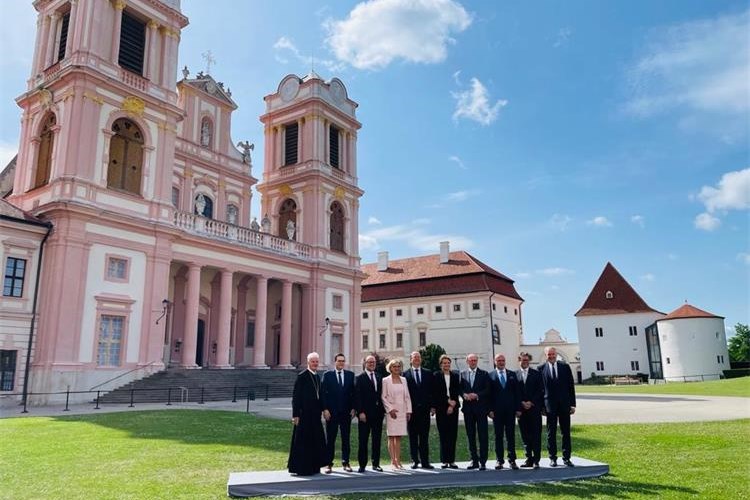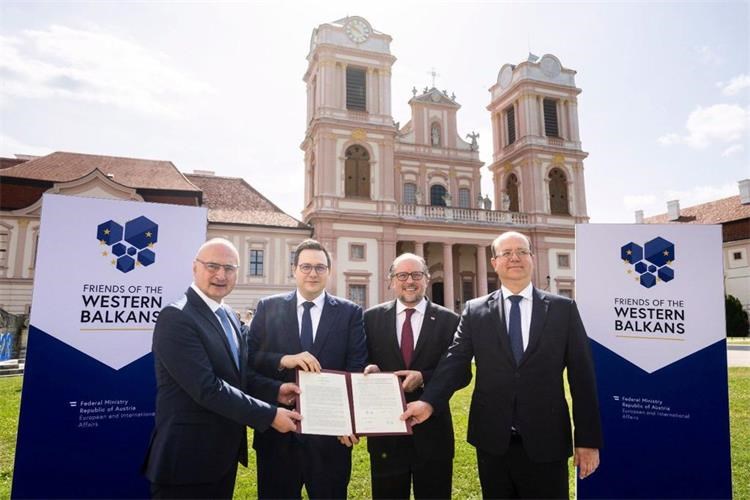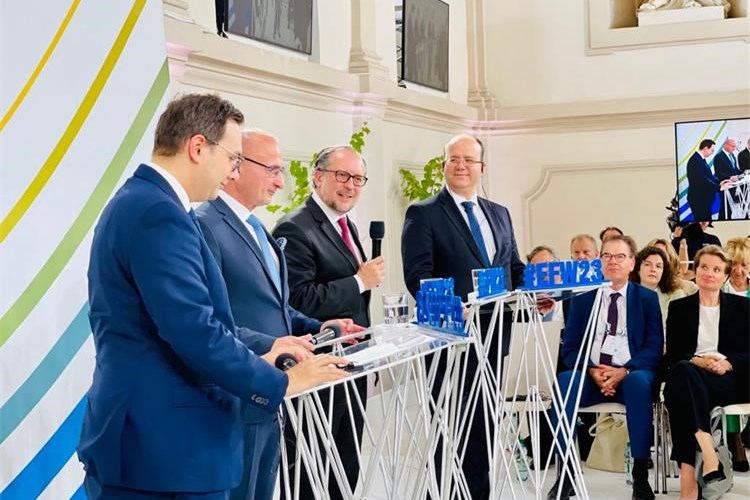- Published: 23.06.2023.
Minister Grlić Radman attends Europa-Forum Wachau
At the start, the minister underscored the commitment of EU policies to the Western Balkan countries, adding: “Trust is key here. The main question is how to revive confidence in the enlargement policy – both within the EU and in the Western Balkans. In order to have confidence in the process, it has to be credible, and this is where the responsibility of the European Union lies. Last year was very important, as the enlargement process gained a certain momentum with our decisions on Albania, North Macedonia, and Bosnia and Herzegovina. This means that the Western Balkan countries have to focus on the EU-related reforms.”
Grlić Radman said that outstanding issues from the past still strongly influenced the situation in Southeast Europe and that their resolution was crucial for the stability of the region. He added that it was necessary to strengthen good neighbourliness and regional cooperation.
“Enlargement has been on autopilot for years, and the results of such an approach are very disappointing – there has been almost no progress and the whole process has come to a standstill. It has become clear that we have to do something to revive the process and make it more efficient. We are now headed in the right direction, with several important changes that include political engagement from the highest political level, a clear roadmap with an established strategy based on credibility and responsibility, a new methodology, strong pre-accession assistance and new initiatives with regard to stronger cooperation and partnership, accelerated or gradual integration and political dialogue. I hope that this will make the enlargement process more tangible for the countries and more relevant for their citizens,” Grlić Radman concluded.
Other participants in the panel included foreign ministers of Austria, Alexander Schallenberg, the Czech Republic, Jan Lipavský, and Slovakia, Miroslav Wlachovský, who then signed a joint statement – the Göttweig Declaration of the Friends of the Western Balkans. The declaration confirmed commitment to the European future of the Western Balkans, with the ministers calling for accelerating the accession process and strengthening cooperation, notably in regard to the Common Foreign and Security Policy.





